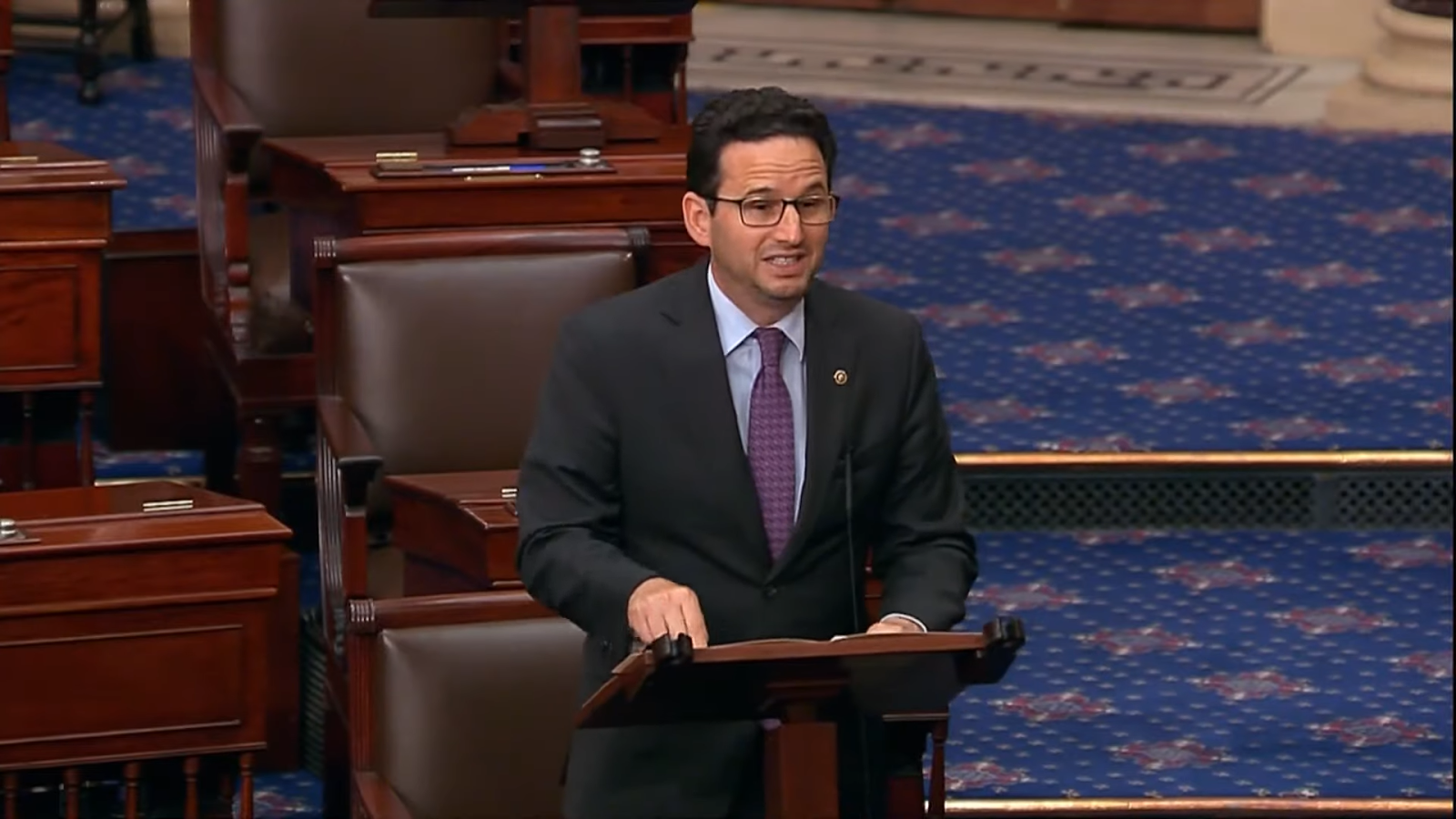Why You Should Read The Federalist Papers This July Fourth
Summary:
The query highlights the struggle within the American political system in 2024, as evidenced by a Pew Survey showing low approval of governmental institutions and political parties. Various suggested changes include revising Senate representation, implementing term limits for the Supreme Court, and Addressing the challenges outlined in the Pew Research Center survey regarding the negative views of politics and elected officials in the United States is crucial for fostering trust and credibility in the American political system. One proposed solution to enhance the system’s effectiveness could involve revising Senate representation to ensure fair and proportional representation of citizens’ views.
Implementing term limits for the Supreme Court could also contribute to increasing accountability within the judiciary branch and prevent potential entrenchment of ideological biases. This measure could help ensure a more dynamic and responsive Supreme Court that reflects the evolving values and needs of American society.
these suggested changes aim to address the underlying issues contributing to the low approval ratings of governmental institutions and political parties in the United States. By implementing reforms that promote transparency, accountability, and representation, the American political landscape in 2024 could potentially see improvements in public trust and satisfaction with the government.
One of the few things Americans agree about in 2024 is that our political system is struggling. A Pew Survey last year found that positive views of many governmental and political institutions are at historic lows and that an increasing share of the public dislikes both political parties. From this frustration comes many suggested changes: revising or ending equal state representation in the Senate, creating term limits for the Supreme Court, and abolishing the Electoral College.
Yet the reasons offered for such suggestions would represent a departure from the writings of The Federalist Papers, that collection of 85 essays penned by Alexander Hamilton, James Madison, and John Jay under the shared pseudonym Publius to promote the ratification of our Constitution. Given Americans’ embarrassing ignorance regarding the basics of our government — only 44 percent know the length of a full Senate term, and a third do not know there are three branches of government — perhaps we need to better understand why our government was created the way it is. And what better day than Independence Day to reflect on the relevance of these incredible documents for our constitutional government?
Why The Federalist Papers Still Matter
Those familiar with the musical “Hamilton” will know that the Articles of Confederation, our nation’s first attempt at a national constitution, failed miserably. The federal government was beholden to the states, who could conduct their own foreign policy, print their own money, and were not required to deliver tax revenue to the federal government. Congress required nine of 13 states to ratify any law, and it was almost impossible to amend the Articles. The Constitutional Convention that met in 1787 offered a solution to that problem — a federal system with more power vested in the central government — but it still had to be ratified by the states, something the Anti-Federalist camp, led by politicians such as Patrick Henry, attempted to prevent.
Hamilton (who wrote the majority of The Federalist Papers), Madison (who arguably wrote the most important ones), and Jay (who wrote five) joined forces to defend the new Constitution and address the various charges leveled by the Anti-Federalists. Though not themselves binding as law, as is the Constitution, The Federalist Papers, similar to the Declaration of Independence, serve as invaluable interpretive documents regarding our founding principles.
Indeed, The Federalist Papers are cited far more than any other source in Supreme Court jurisprudence. Chief Justice John Marshall in Cohens v. Virginia (1821) called it “a complete commentary on our constitution; and is appealed to by all parties in the questions to which that instrument has given birth.”
If You’re Going to Read The Federalist Papers…
The Federalist Papers can seem intimidating, given both their language — which can be fairly technical and dense — and that there are so many of them. Where to begin? Must they be read from beginning to end? The short answer is no. Though all The Federalist Papers are worth reading, there are some whose influence and relevance outpaces the rest. Here I’ll offer a brief appetizer to what many political thinkers assess to be the most important ones, any of which could easily be read over a beer before or after your Independence Day cookout.
Federalist No. 2: This paper, by Jay, notes some of the qualities that make the United States particularly capable of self-government. One of these is that America, unlike other nations “composed of detached and distant territories,” is instead “one connected, fertile, widespreading country” with a variety of topography and climates. In language that should inform our debates on immigration and cultural relativism, Jay argues another strength is that America is “one united people — a people descended from the same ancestors, speaking the same language, professing the same religion, attached to the same principles of government, very similar in their manners and customs…” All of this, Jay observes, appears to be the “design of Providence.”
Federalist No. 6: Hamilton here offers a sober assessment of the nature of man, who is “ambitious, vindictive, and rapacious.” In words that would shock those who aim to forcibly export democracy around the world, Hamilton rhetorically asks: “Have republics in practice been less addicted to war than monarchies? Are not the former administered by men as well as the latter?” Thus, Hamilton warns utopians against the “deceitful dream of a golden age,” accomplished by some allegedly perfect political structure that will enable man to transcend his tendency to sin and selfishness.
Federalist No 10: In Madison’s first essay, the “father of the Constitution” swings for the fences, arguing that a “well-constructed Union” is capable of controlling the inevitable violence of factions that is “sown into the nature of man.” Our eventual fourth president observes that you can neither remove the causes of faction by vitiating people’s liberty nor coercing everyone into the same opinions, passions, and interests — both of which are, of course, antithetical to the American project. Or you can attempt to minimize the effects of faction via a large republican government (i.e. the United States).
Federalist No. 51: This is another Madison gem, in which he argues that the federal government should have “checks and balances” between the different branches and be as independent as possible so that one branch does not exert a dominating influence over the others. (What would he think of the power of the executive branch today?) Madison praises the decentralized political system created by the Constitution, in which “society itself will be broken into so many parts, interests, and classes of citizens, that the rights of individuals, or the minority, will be in little danger from interested combinations of the majority.” This is also the famous essay featuring the phrase: “If men were angels, no government would be necessary.”
Homework for this Fourth of July
I hope this very brief synopsis of a few of the most influential of The Federalist Papers is enough to persuade you to give a few minutes to one or more of them this holiday celebrating the greatest nation on Earth. If you want a few more suggestions, essays No. 1, 9, 15, 33, 39, 48, 49, 62, 63, 70-72, and 84 are also influential.
Forget what the condescending elites of our legacy institutions in the academy and media tell us about the need to overthrow our constitutional order for the sake of “democracy” or, as is often cynically and erroneously claimed, because the framers were bent on self-aggrandizement. Rather, as The Federalist Papers warn, the left’s political suggestions would only bring about the very evils our Founding Fathers feared, including the enrichment and empowering of an elite class.
Our government was formed by an alliance of some of the most brilliant political thinkers in history, who, for some providential reason, all happened to live in the same generation and the same nation. It’s our failure to remember and understand their wisdom — rather than some defect in the timeless truths they espoused — that explains much of the struggles of our contemporary age. Familiarizing ourselves with our Constitution and its most illustrious interpreters in The Federalist Papers will do much to restore our political sanity. This Independence Day, you have your homework.
Casey Chalk is a senior contributor at The Federalist and an editor and columnist at The New Oxford Review. He has a bachelor’s in history and master’s in teaching from the University of Virginia and a master’s in theology from Christendom College. He is the author of The Persecuted: True Stories of Courageous Christians Living Their Faith in Muslim Lands.
" Conservative News Daily does not always share or support the views and opinions expressed here; they are just those of the writer."





Now loading...